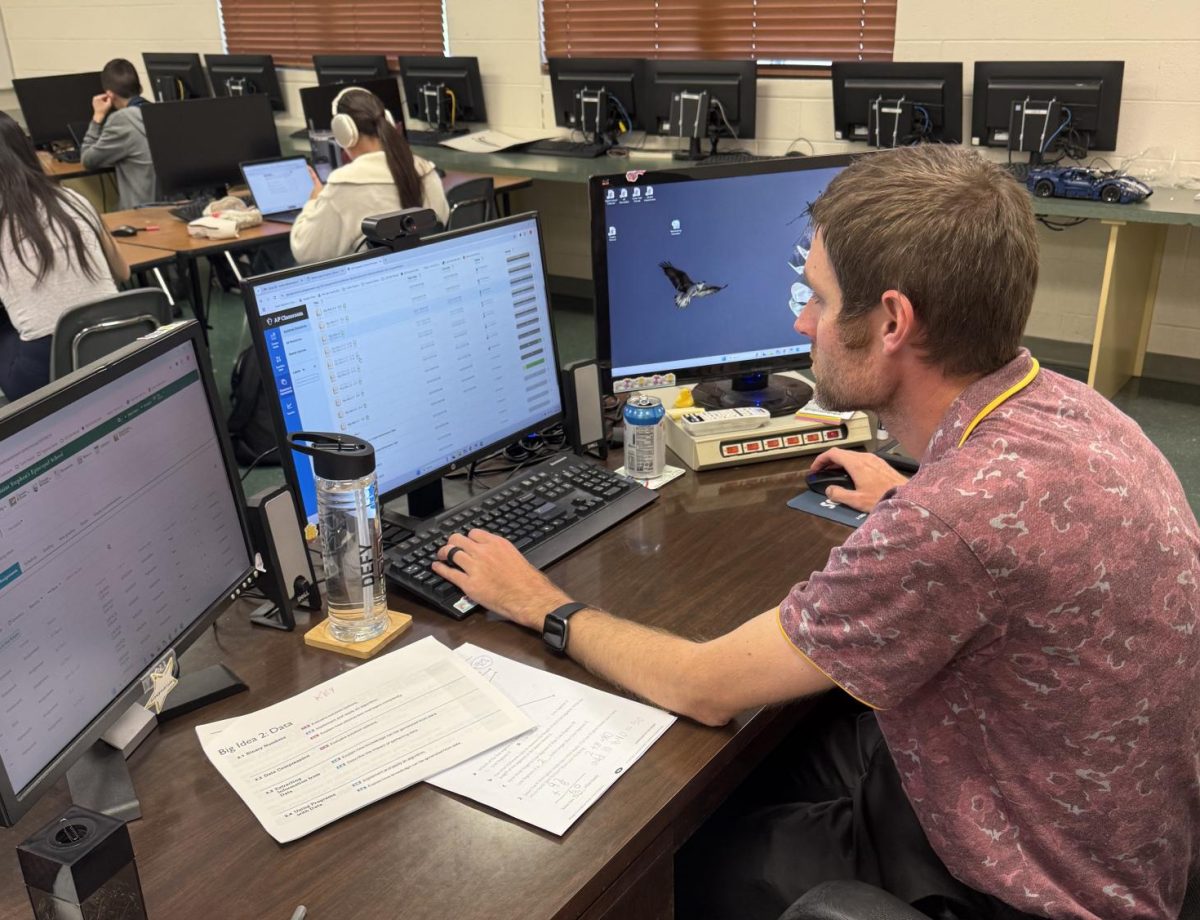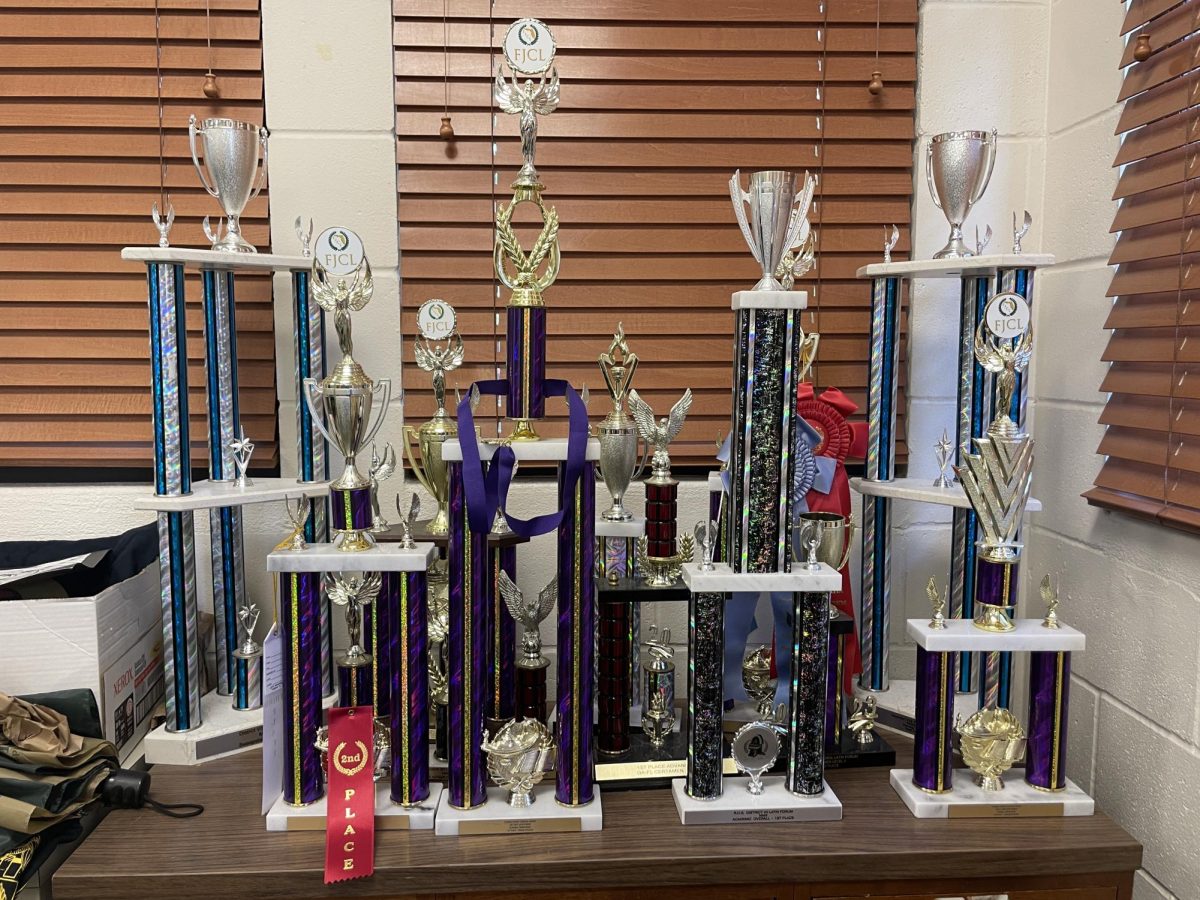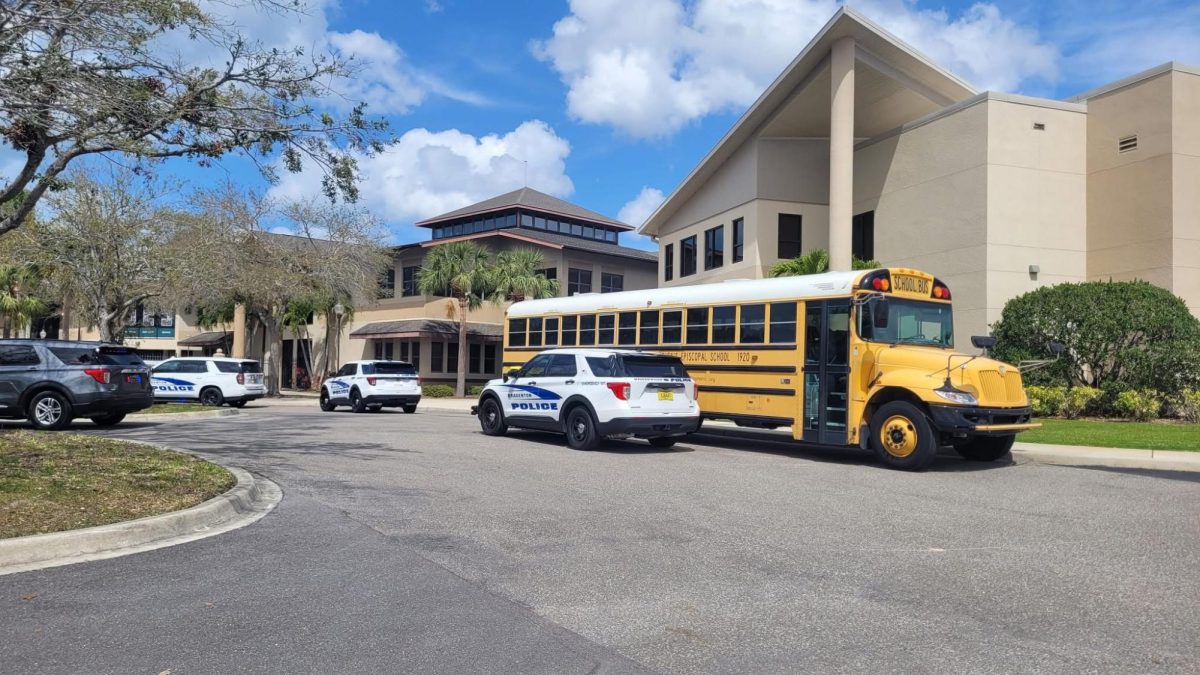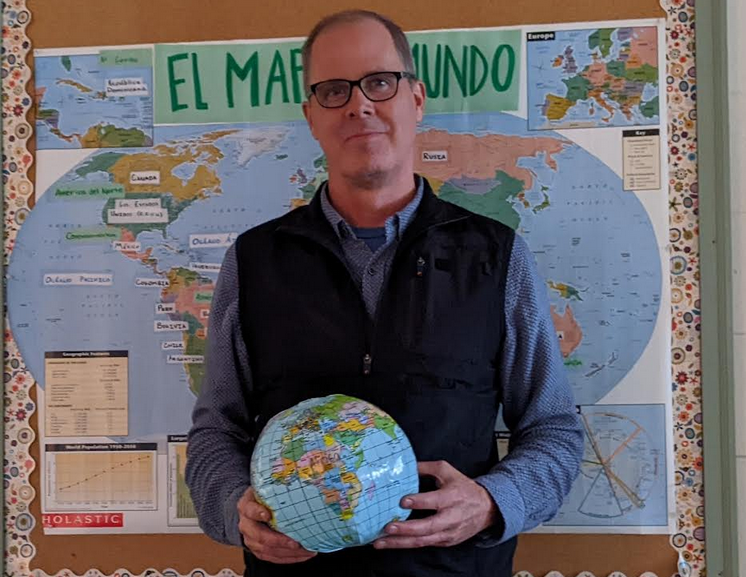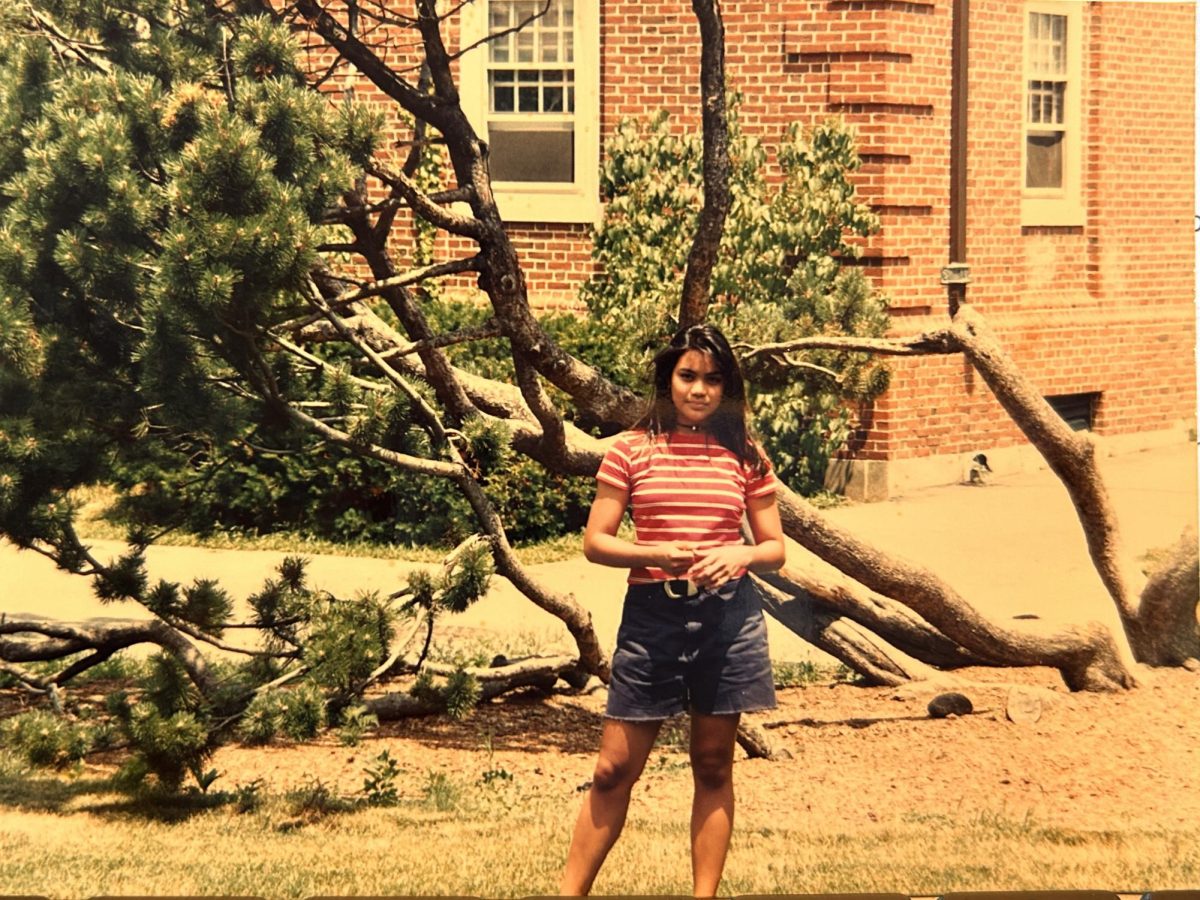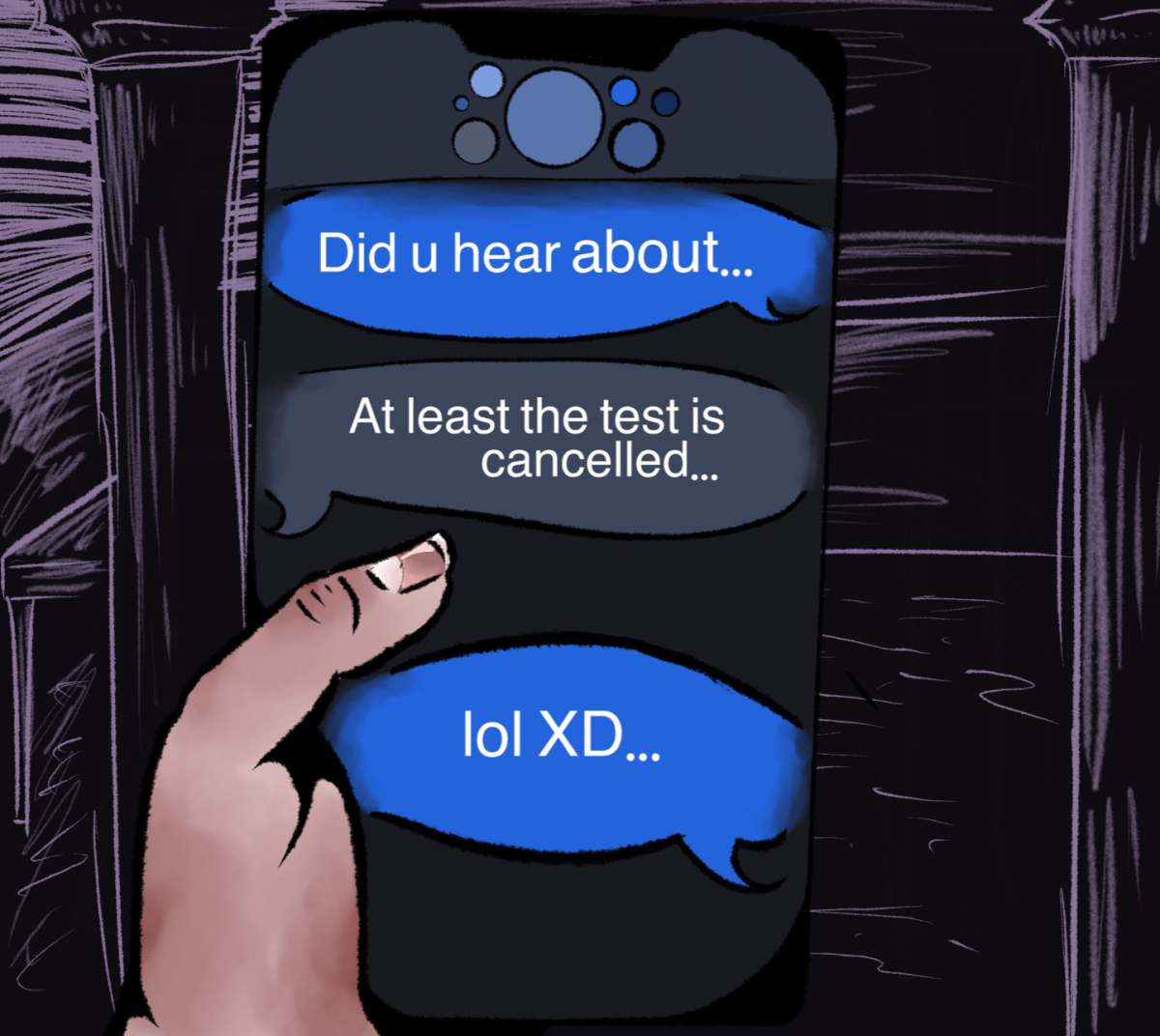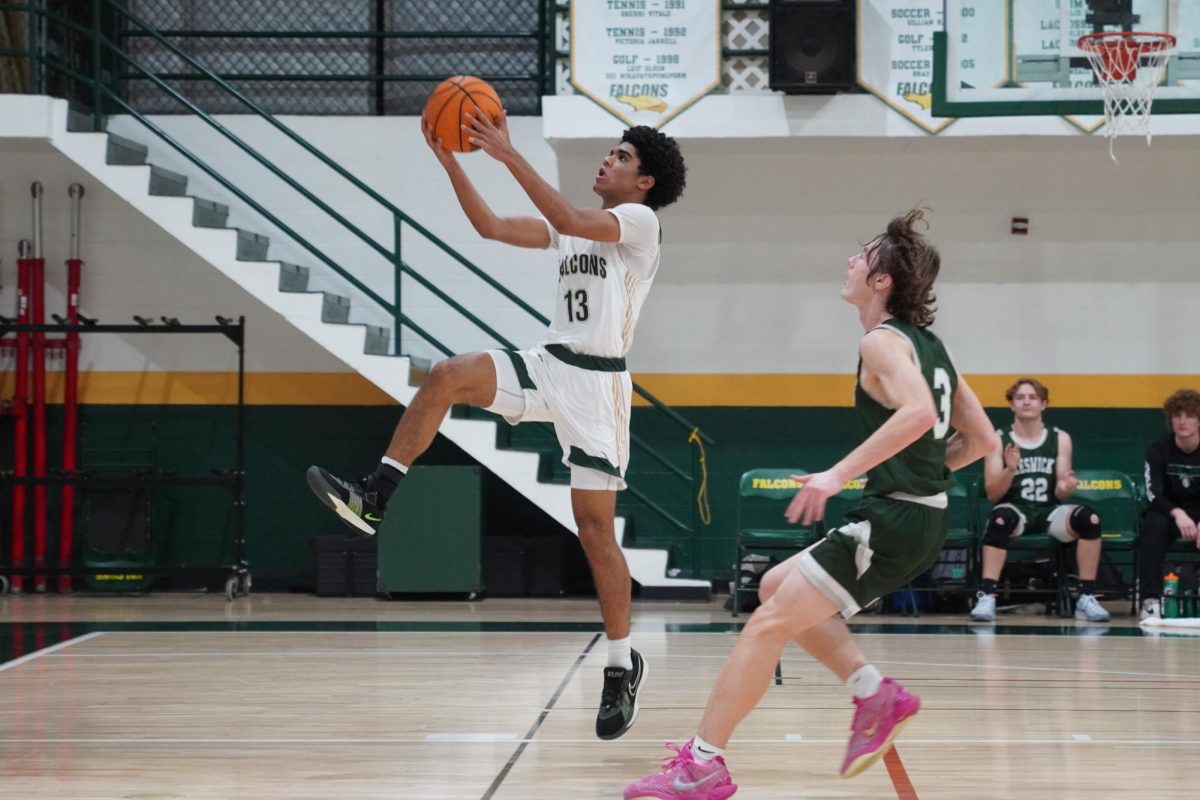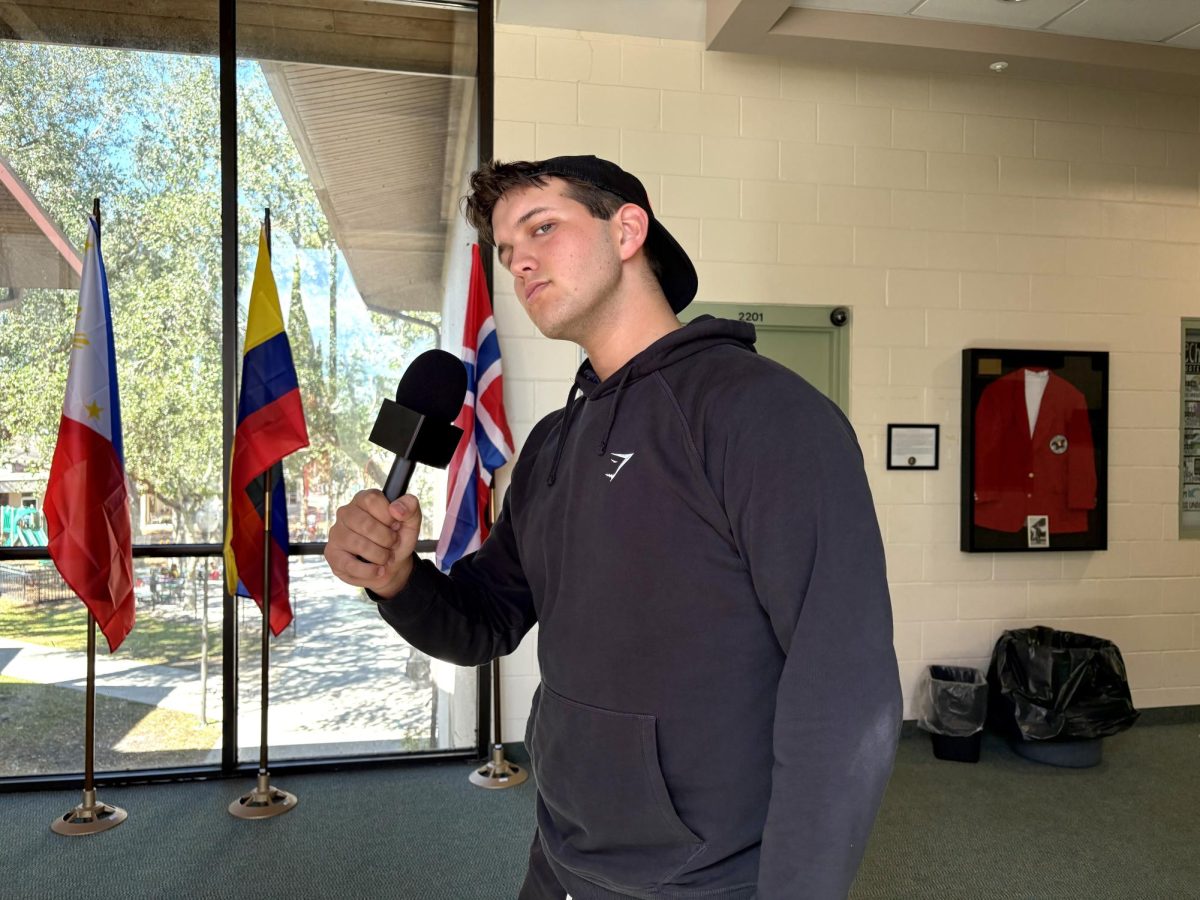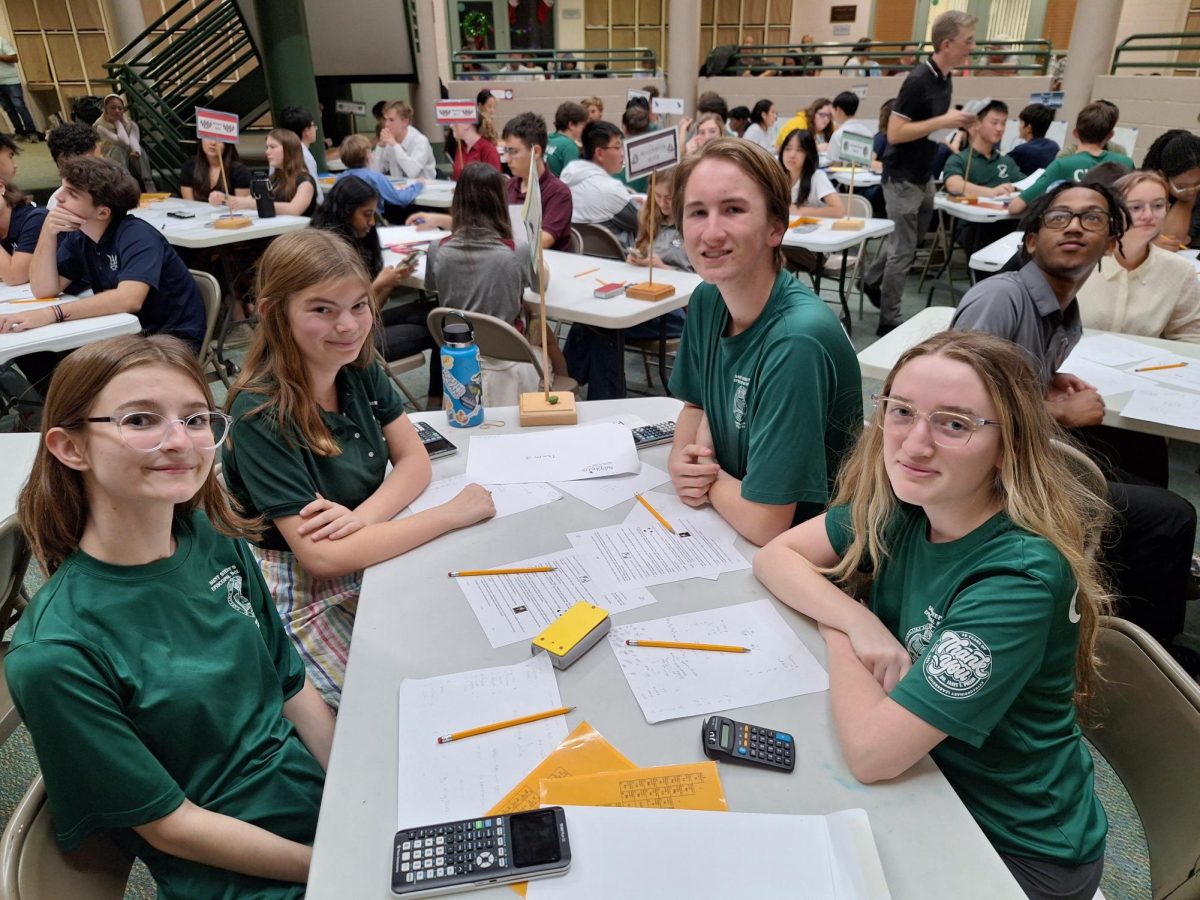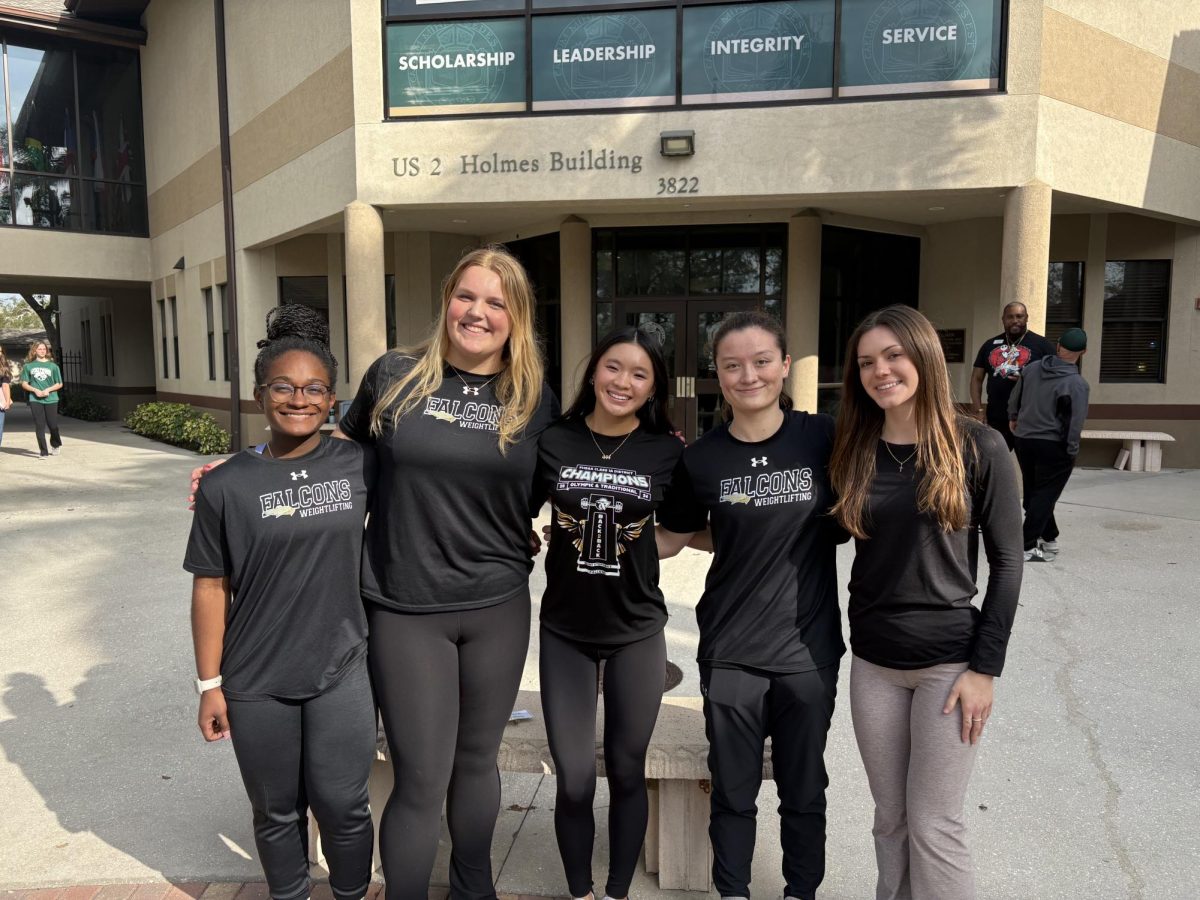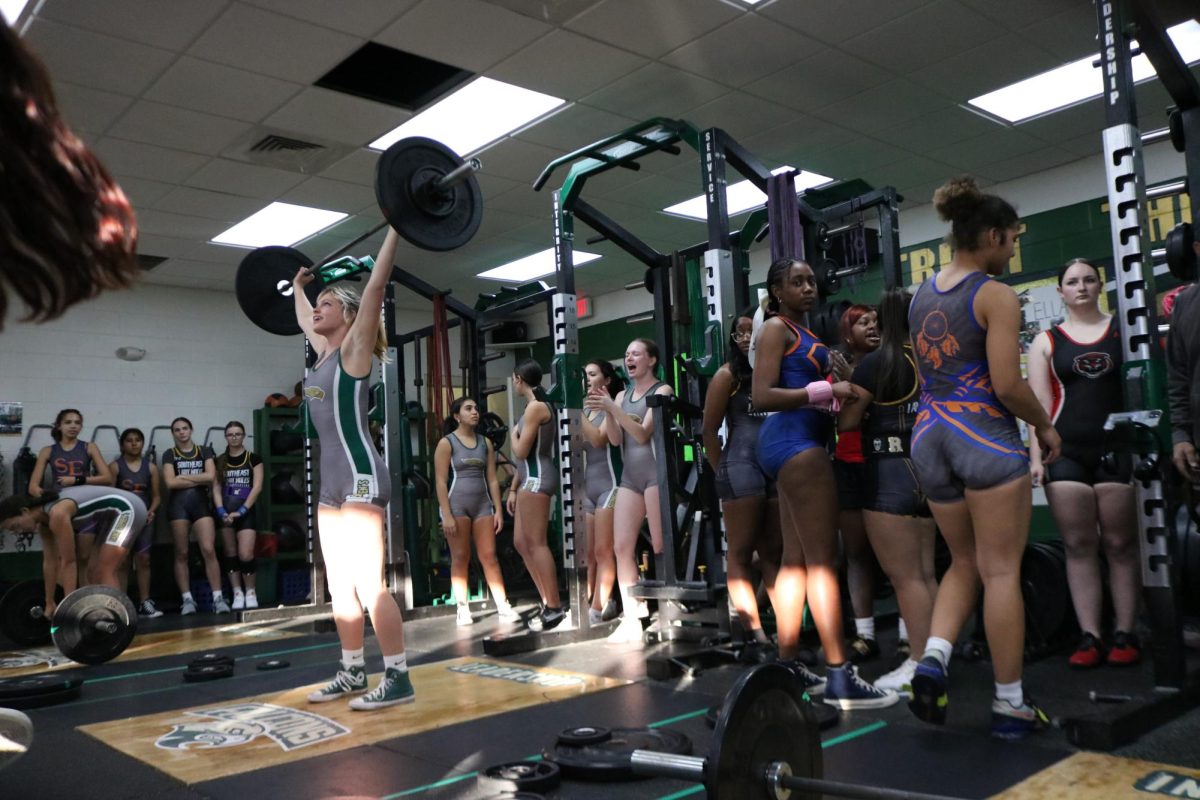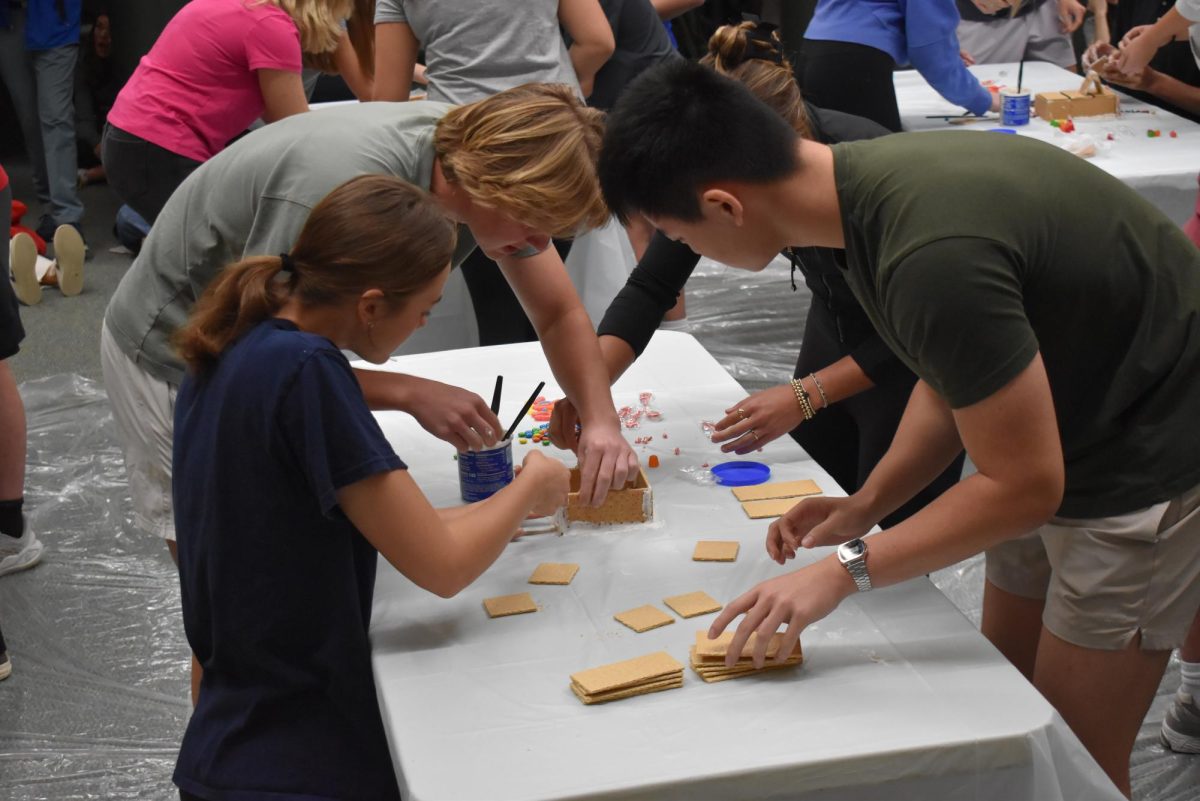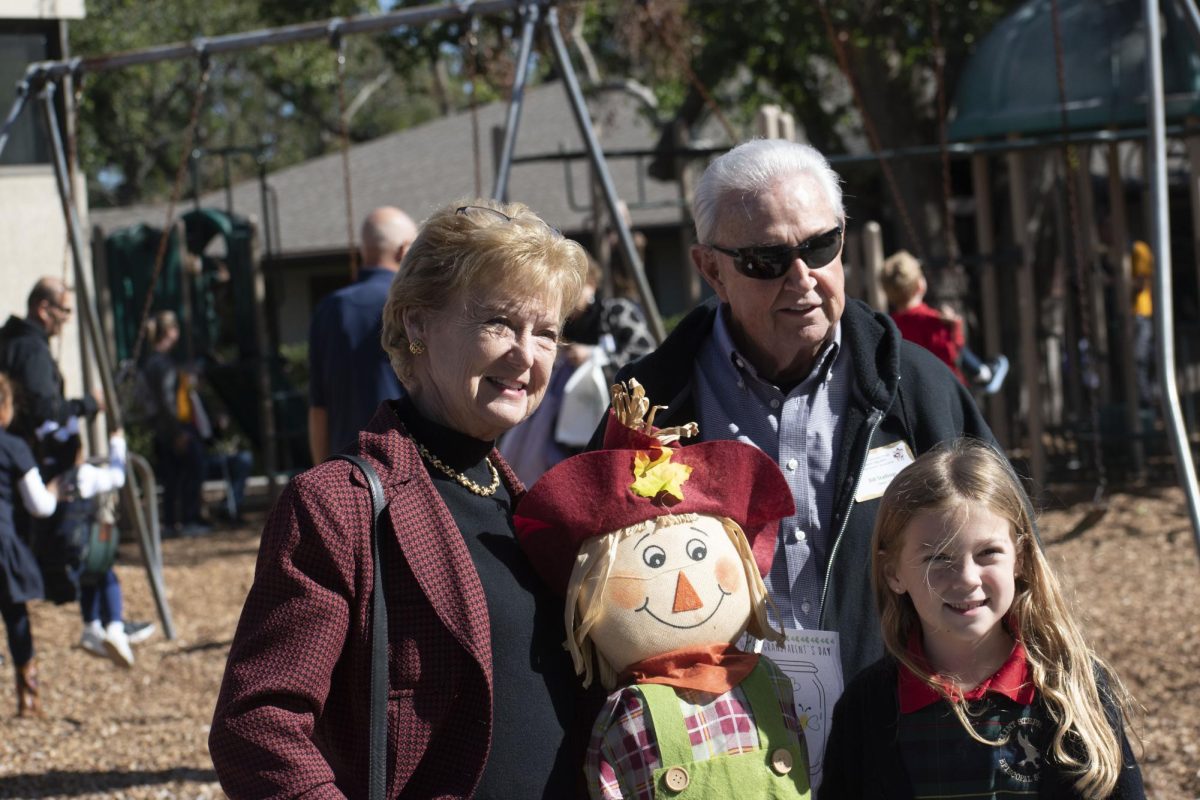During the annual Boston Marathon in 1998, thousands of runners had goals set in mind. A teenage boy jumped in from the sidelines to finish the last six miles, to fulfill his own wish. This boy was our own Mr. J.B. Wolcott, who has since ran 25 marathons.
There was only one reason he wanted to run the Boston Marathon in the first place: to cross the finish line alongside his father. Wolcott did so in 1999 during his senior year and since then has completed many more, marking his 16th one in Boston earlier this March.
“It was great to run the entire length all of the 26.2 miles with him. We were able to stay together the whole time and cross the finish line together,” Wolcott said. “[It’s a] great father-son moment to be able to do this together. It was very easy to set [since it was a] certain time every year, you get together and you go. It became our celebration of running and our father-son [relationship].”
Even so, Wolcott’s experience of running last year’s Boston Marathon still instills fear in him.
Wolcott said that going back to Boston to run after the bombing was tough not because he was affected directly by it in any way, but by the thought of what could’ve happened.
“It was so easy for me to imagine if I [would’ve] finished the race earlier or if I had done what I usually do when I’m running that part of the race,” he said.
Wolcott said a popular saying is you can’t be afraid because then the terrorists win. To this, he simply said that he does feel afraid, but he’s not going to make the choice not to be involved.
“We can’t let the fear get in the way of this event. It’s been over 100 years that this event [has been going on]. Nobody likes to celebrate more than Boston does as a city. If somebody has hurt them, like the community was hurt last year, Bostonians are very good at standing together and being defiant about it,” Wolcott said.
He said it is best to have the Bostonians be defiant and happy at the same time because “it’s this perfect mix of Bostonian area chemistry.”
Fortunately, at the time of the bombing last year, Wolcott had been running with his cell phone in his pocket because he had planned to head to the airport afterwards. He was able to contact his family to let them know that he was unharmed before they had even heard what happened in Boston.
“I was able to help about 10 different runners to help get in touch with their families,” Wolcott said.
This year, Wolcott was not as well prepared physically to run the marathon.
“I wanted to be in a place where I was going to run it my best year ever. I felt like I wasn’t worthy of being in the race. On the flip side, as someone who was going into my 16th year, with my positive outlook on it, I felt part of that community [and wanted] to be able to give that back to the fans,” Wolcott said.
His family had initially planned for his wife and two children, who are one and three years old, to come support him until there was a ban on strollers and backpacks on the course to lessen the ability of moving explosives.
“Because of that security, we decided that [they] weren’t going to [attend]. This year it was just something we couldn’t do logistically,” he said.
Wolcott said his wife was a big emotional support for him this year in that she helped him sort out his feelings after the bombing last year.
“I was sad, angry and happy I was still alive. I felt guilty I was still alive. There were a lot of emotions mixed up of surviving the experience and not being hurt,” Wolcott said.
He said it was a relief when he ran past the site of where he was near the bombing and the actual bombing site as it was important to get past that physical place. Wolcott felt it was important to recognize the fans who were standing there
“They were present, [which] was inspiring. That made me really proud. [When] I crossed the finish line, [I cried] tears of joy. It was like coming home when you hadn’t been allowed to be home. I didn’t get to cross the finish line last year, and when I did this year, it was big,” Wolcott said. “It was bigger than I thought it would be like to cross the finish line. I felt like I got home.”
Wolcott shared his advice about running the Boston Marathons, adding that the greatest amount of physical toll is in your quads.
“For any [marathoner] who runs 20 miles a week, you need four months to get ready. For Boston in particular, you need to get good at running down hills [in a] relaxed [state]. The down hills cause you to tighten up, [so] take it easy on the down hills and run faster on the flat surfaces,” Wolcott said.
“The day of, anything can happen. So, no matter how well trained you are at Boston, if you have an east wind in your face for 26.2 miles, you might as well have someone pushing you backwards. If it is the west wind, things are great.”
Dr. Randy Watts, Upper School director, said that he has always been impressed with Wolcott’s running interest and passion for it.
“I love the fact that he’s got the strength and that not only does he show his athleticism, but his passion and dedication,” Watts said.
Senior Kemery Colbert said that to see Wolcott set aside extra time for his passion is something she really appreciates.
“To see him so involved and to be so proud of something that he does is a good thing to look at every day, knowing that he’s that dedicated to something and it means that much to him.”
“Overall I am very impressed by what he does and appreciate how he shares it with the community,” Watts said.

